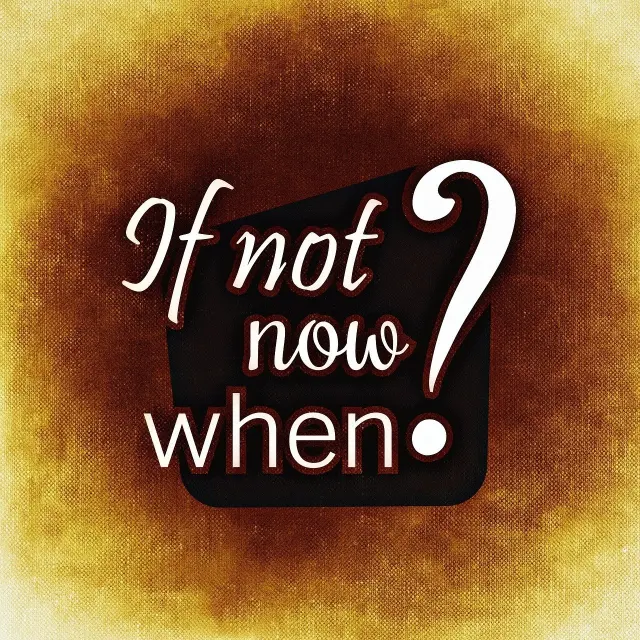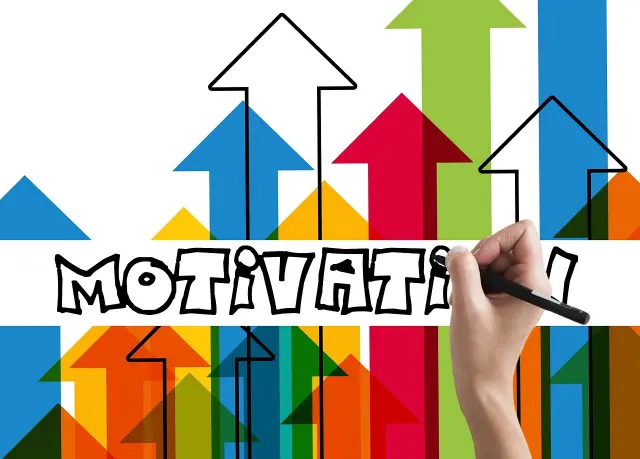Nem működik a csapaton belüli kommunikáció? A Coaching segíthet ebben
A hatékony csapatmunka alapja a jó kommunikáció. Amikor a csapaton belüli kommunikáció nem működik, az számos problémát okozhat, például félreértéseket, konfliktusokat, alacsonyabb teljesítményt és elégedetlenséget. A coaching egy olyan módszer, amely segíthet ezeknek a problémáknak a megoldásában, és javíthatja a csapat kommunikációját. Ebben a blogcikkben megvizsgáljuk, hogy miért fontos a csapaton belüli kommunikáció, milyen jelei vannak annak, hogy a kommunikáció nem működik megfelelően, és hogyan segíthet a coaching ennek a helyzetnek a javításában.
Miért fontos a csapaton belüli kommunikáció?
A kommunikáció minden csapat alapvető eleme, mivel lehetővé teszi a tagok számára, hogy információt osszanak meg, együttműködjenek, és közös célokat érjenek el. A jó kommunikáció elősegíti a bizalmat, növeli a hatékonyságot, és javítja a munkahelyi légkört. Az alábbiakban néhány konkrét okot sorolunk fel, hogy miért elengedhetetlen a hatékony kommunikáció a csapaton belül:
- Információmegosztás: A csapattagok közötti információmegosztás elengedhetetlen a feladatok pontos végrehajtásához és a projektek sikeres befejezéséhez. A megfelelő kommunikáció biztosítja, hogy mindenki naprakész legyen a fontos információkkal kapcsolatban.
- Együttműködés és Szinergia: A jó kommunikáció lehetővé teszi a csapattagok számára, hogy együttműködjenek és kihasználják egymás erősségeit. Ez elősegíti a szinergiát, ahol a csapat teljesítménye nagyobb, mint az egyes tagok teljesítményének összege.
- Conflict resolution: Minden csapatban előfordulhatnak konfliktusok. A hatékony kommunikáció segít abban, hogy ezeket a konfliktusokat gyorsan és hatékonyan megoldják, anélkül hogy azok hosszú távú problémákat okoznának.
- Motiváció és Elkötelezettség: A jó kommunikáció segít a csapattagok motiválásában és elkötelezettségük fenntartásában. Amikor a tagok úgy érzik, hogy meghallgatják és értékelik őket, nagyobb valószínűséggel tesznek meg mindent a csapat sikere érdekében.
A rossz csapatkommunikáció jelei
Számos jel utalhat arra, hogy a csapaton belüli kommunikáció nem működik megfelelően. Ha ezeket a jeleket tapasztaljuk, érdemes komolyan elgondolkodni a probléma megoldásán. Az alábbiakban felsorolunk néhány gyakori jelet:
- Gyakori Félreértések: Ha a csapattagok gyakran félreértik egymást, az arra utalhat, hogy a kommunikáció nem elég világos vagy pontos. Ez sokszor feszültséget és frusztrációt okozhat.
- Konfliktusok és Feszültségek: A folyamatos konfliktusok és a magas szintű feszültség a csapaton belül azt jelezheti, hogy a kommunikáció nem hatékony, és a problémákat nem sikerül időben megoldani.
- Elégedetlenség és Demotiváció: Ha a csapattagok elégedetlenek és demotiváltak, az gyakran a rossz kommunikációra vezethető vissza. Az elégedetlenség és a motiváció hiánya rontja a teljesítményt és növeli a fluktuációt.
- Alacsony Hatékonyság: A hatékonyság csökkenése szintén a rossz kommunikáció egyik jele lehet. Ha a csapat nem tud hatékonyan együttműködni, az a projektek csúszásához és a teljesítmény romlásához vezethet.
- Információhiány: Ha a csapattagok nem kapnak elegendő információt a munkájukhoz, vagy ha az információk nem jutnak el mindenkihez időben, az jelentős problémákat okozhat a projektvégrehajtás során.
Hogyan segíthet a coaching a kommunikáció javításában?
* coaching egy hatékony eszköz lehet a csapaton belüli kommunikáció javításában. A coach segíthet a csapattagoknak fejleszteni kommunikációs készségeiket, és támogathatja őket abban, hogy jobban megértsék és kezeljék a kommunikációval kapcsolatos kihívásokat. Az alábbiakban bemutatjuk, hogyan segíthet a coaching a csapat kommunikációjának javításában:
- Communication Skills Development: A coaching során a csapattagok különböző technikákat és módszereket tanulhatnak a hatékony kommunikációhoz. Ez magában foglalhatja az aktív hallgatás, a tiszta és világos üzenetközlés, valamint a nem verbális kommunikáció fejlesztését.
- Önismeret és Önreflexió: A coach segíthet a csapattagoknak abban, hogy jobban megismerjék saját kommunikációs stílusukat és viselkedési mintáikat. Az önismeret és az önreflexió elősegíti a személyes fejlődést, és hozzájárul a jobb kommunikációhoz.
- Konfliktuskezelési Készségek Fejlesztése: A coaching segíthet a csapattagoknak abban, hogy hatékonyabban kezeljék a konfliktusokat. A coach tanácsokat adhat és gyakorlatokat végezhet a konfliktuskezelési készségek fejlesztésére, amelyek hozzájárulnak a harmonikusabb csapatmunkához.
- Bizalom és Nyitottság Kiépítése: A coaching során a csapattagok megtanulhatják, hogyan építsenek bizalmat és nyitottságot egymás iránt. A bizalom és a nyitottság alapvető fontosságúak a jó kommunikációhoz, mivel lehetővé teszik a tagok számára, hogy őszintén és nyíltan kommunikáljanak.
- Csapatdinamika Fejlesztése: A coach segíthet a csapatdinamika javításában is. Ez magában foglalhatja a csapattagok közötti interakciók elemzését és a kommunikációs folyamatok finomítását. A coach támogatásával a csapat jobban megértheti, hogyan működik együtt, és hogyan lehet hatékonyabban kommunikálni.
Konkrét coaching technikák a kommunikáció javítására
A coaching számos konkrét technikát kínálhat a csapat kommunikációjának javítására. Az alábbiakban bemutatunk néhány gyakorlati módszert, amelyeket a coachok alkalmazhatnak:
- Aktív Hallgatás Gyakorlása: Az aktív hallgatás az egyik legfontosabb kommunikációs készség. A coach különböző gyakorlatokkal segíthet a csapattagoknak fejleszteni ezt a képességet, például páros gyakorlatokkal, ahol a tagok egymásra figyelnek és visszajelzéseket adnak.
- Kommunikációs Stílusok Felismerése: A csapattagok különböző kommunikációs stílusokkal rendelkezhetnek. A coach segíthet abban, hogy mindenki felismerje saját stílusát, és megtanulja, hogyan alkalmazkodjon másokéhoz. Ez elősegíti a jobb megértést és együttműködést.
- Konfliktuskezelési Szenáriók: A coach valósághű konfliktuskezelési helyzeteket hozhat létre, amelyekben a csapattagok gyakorolhatják a konfliktuskezelési technikákat. Ez a gyakorlat segít abban, hogy a tagok jobban felkészüljenek a valódi konfliktushelyzetekre.
- Developing a Feedback Culture: A visszajelzés fontos része a hatékony kommunikációnak. A coach segíthet a csapatnak kialakítani egy olyan kultúrát, ahol a visszajelzés rendszeres és konstruktív. Ezt támogathatják visszajelzési körök, ahol a tagok egymás munkáját értékelik és javaslatokat tesznek.
- Nem Verbális Kommunikáció Fejlesztése: A kommunikáció jelentős része nem verbális. A coach különböző gyakorlatokkal segíthet a csapattagoknak jobban megérteni és használni a nem verbális jeleket, mint például a testbeszédet, a mimikát és a szemkontaktust.
A coaching hatása a csapat teljesítményére
A coaching pozitív hatása a csapat kommunikációjára közvetlenül befolyásolja a csapat teljesítményét. Az alábbiakban bemutatjuk, hogyan járulhat hozzá a coaching a csapat sikeréhez:
- Növekvő Hatékonyság: A javuló kommunikáció lehetővé teszi a csapattagok számára, hogy hatékonyabban dolgozzanak együtt. Az információk gyorsabb és pontosabb megosztása csökkenti a félreértések számát és növeli a munka hatékonyságát.
- Javuló Csapatmorál: A jobb kommunikáció és a konstruktív visszajelzés hozzájárul a csapattagok elégedettségéhez és motivációjához. Az elégedett és motivált csapattagok nagyobb valószínűséggel járulnak hozzá a csapat céljainak eléréséhez.
- Innováció és Kreativitás: A nyitott és bizalommal teli kommunikációs környezet elősegíti az innovációt és a kreativitást. A csapattagok bátrabban osztják meg ötleteiket és javaslataikat, ami új megoldásokhoz és jobb eredményekhez vezethet.
- Jobb Konfliktuskezelés: A hatékony konfliktuskezelési készségek csökkentik a konfliktusok negatív hatásait és elősegítik a konstruktív megoldásokat. A csapat jobban képes lesz kezelni a kihívásokat és fenntartani a harmonikus munkakörnyezetet.
- Fokozott Rugalmasság: A jó kommunikáció segít a csapatnak rugalmasabban alkalmazkodni a változásokhoz és kihívásokhoz. A csapattagok jobban megértik egymást és együttműködnek, ami növeli a csapat ellenállóképességét és alkalmazkodóképességét.
Conclusion
A csapaton belüli kommunikáció elengedhetetlen a hatékony csapatmunkához és a vállalat sikeréhez. Ha a kommunikáció nem működik megfelelően, az súlyos problémákat okozhat, de a coaching hatékony eszköz lehet a helyzet javítására. A coaching segíthet a csapattagoknak fejleszteni kommunikációs készségeiket, javítani az önismeretüket, és hatékonyabban kezelni a konfliktusokat. A coach támogatásával a csapat jobban megértheti egymást, növelheti a bizalmat és nyitottságot, és javíthatja a csapatdinamikát. A jobb kommunikáció pedig közvetlenül hozzájárul a csapat teljesítményének növeléséhez, a csapatmorál javításához, az innováció elősegítéséhez, a jobb konfliktuskezeléshez és a fokozott rugalmassághoz. A coaching így nemcsak a csapat kommunikációját javítja, hanem a csapat hosszú távú sikeréhez is hozzájárul.
Miért fontos a kommunikáció a csapaton belül?
A kommunikáció a csapaton belül elősegíti az információmegosztást, az együttműködést, a konfliktusok hatékony kezelését, a motiváció és elkötelezettség fenntartását, valamint növeli a csapat hatékonyságát és teljesítményét.
Milyen jelei vannak a rossz, vagy hibás csapatkommunikációnak?
A gyakori félreértések, konfliktusok, feszültségek, elégedetlenség, demotiváció, alacsony hatékonyság és információhiány mind jelei lehetnek a nem megfelelő csapatkommunikációnak.
Hogyan segíthet a coaching a csapat kommunikációjának javításában?
A coaching segíthet a csapattagok kommunikációs készségeinek fejlesztésében, az önismeret és önreflexió elősegítésében, a konfliktuskezelési készségek javításában, valamint a bizalom és nyitottság kiépítésében a csapatban.
Milyen konkrét technikákat alkalmaznak a coachok a kommunikáció javítására?
A coachok különböző technikákat alkalmazhatnak, például az aktív hallgatás gyakorlását, a kommunikációs stílusok felismerését, konfliktuskezelési szenáriókat, visszajelzési kultúra kialakítását, és a nem verbális kommunikáció fejlesztését.
Milyen hatással van a jobb kommunikáció a csapat teljesítményére?
A jobb kommunikáció növeli a csapat hatékonyságát, javítja a csapatmorált, elősegíti az innovációt és kreativitást, jobb konfliktuskezelést eredményez, és fokozza a csapat rugalmasságát és alkalmazkodóképességét.






















